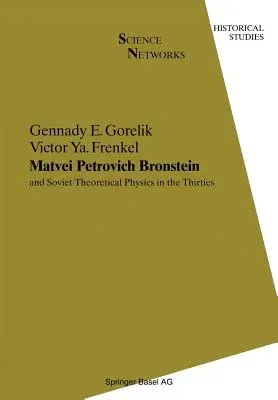Gennady E Gorelik
(Author)Matvei Petrovich Bronstein and Soviet Theoretical Physics in the Thirties: And Soviet Theoretical Physics in the Thirties (1994)Paperback - 1994, 21 October 2012

Qty
1
Turbo
Ships in 2 - 3 days
In Stock
Free Delivery
Cash on Delivery
15 Days
Free Returns
Secure Checkout
Part of Series
Science Networks. Historical Studies
Print Length
208 pages
Language
English
Publisher
Birkhauser
Date Published
21 Oct 2012
ISBN-10
3034896441
ISBN-13
9783034896443
Description
Product Details
Book Edition:
1994
Book Format:
Paperback
Country of Origin:
NL
Date Published:
21 October 2012
Dimensions:
24.41 x
16.99 x
1.14 cm
ISBN-10:
3034896441
ISBN-13:
9783034896443
Language:
English
Location:
Basel
Pages:
208
Publisher:
Weight:
349.27 gm

